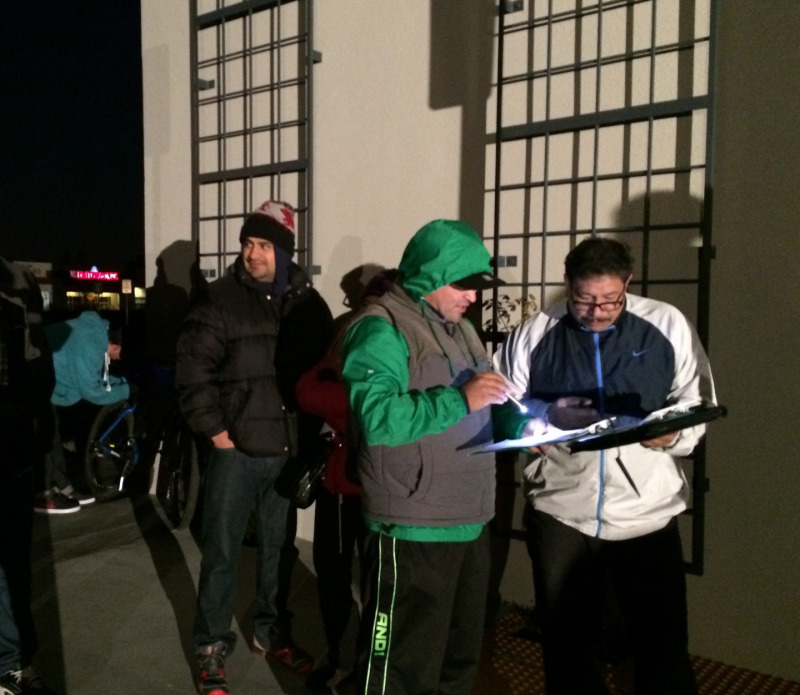None of the new DMV processing centers has the ability to administer actual behind-the-wheel driving tests. After undocumented immigrants pass the written exam and receive a practice permit, they have to make an appointment and return to another office to be tested behind the wheel.
Undocumented immigrants have not been able to obtain a California driver's license in 20 years. Prior to 1994, proof of legal presence was not required. Some undocumented immigrants had licenses before the change in the law, but after they expired, they could not renew them without documentation.
In Stanton on Friday, hundreds of people lined up in the early-morning cold to form a line stretching around a temporary Department of Motor Vehicles office -- some poring over driver's handbooks in preparation for written tests.
"This is a big opportunity for me," said Sammy Moeung, 24, a Cambodian immigrant. "Having this is moving a step forward in life, in California and the United States."
Moeung, who lives in Buena Park, said he arrived a little after 4 a.m. because he didn't want to wait another day to get a license. He said he needs it to avoid having to ride his bike to work at his brother's doughnut shop.
California is one of 10 states now providing licenses to immigrants in the country illegally. The licenses issued to immigrants without legal status will include a distinctive marking and are not considered a valid form of federal identification.
Immigrant advocates have cheered the licenses as a way to integrate immigrants who must drive to work and shuttle children to school. But critics have questioned state officials' ability to verify the identity of foreign applicants, citing security concerns.
Law enforcement officials say the program will improve road safety because licensed drivers must be tested and insured. A DMV study of 23 years of crash data found that unlicensed drivers were more likely to cause a fatal collision than licensed drivers.
State insurance officials hope the change will increase the number of drivers holding auto insurance, though some immigrants say they have always held insurance even though they could not get a license.
Maritza Aguirre, 30, is one of them. She used to take a two-hour bus trip to clean houses in driving-dependent Southern California. Now she drives, but lacks a license and fears her car might be impounded if she is ever stopped by police.
"For me, honestly, it is a blessing," said Aguirre, who has an appointment to apply for a license. "The relief of knowing they won't take your car is a big advantage."
Advocates have encouraged immigrants to seek the license. But they are warning those with deportation orders or criminal records to first seek legal advice since law enforcement can access DMV data.
Applicants must submit proof of identity and state residency and pass written and road tests. Those who don't possess foreign government-issued identification on a list of approved documents can be interviewed by a DMV investigator to see if they qualify.
Immigrants who pass the initial hurdles will get a driving permit. But they must return for a driving test before they can get the new licenses, which will be marked with the words "federal limits apply."
AP contributed to this report.
